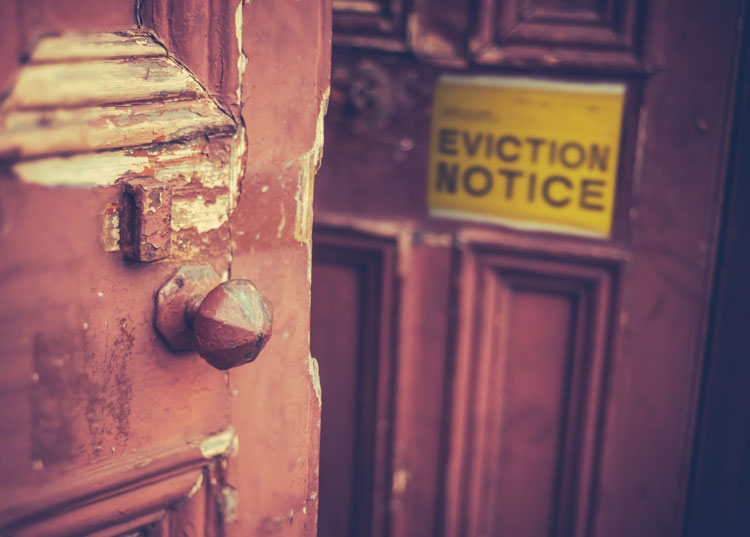[ad_1]
Access to Justice
NAACP-trained nonlawyers may provide limited advice to tenants facing eviction, top state court says

The South Carolina Supreme Court is allowing the NAACP’s state conference to train nonlawyer volunteers to advise tenants as part of a three-year pilot program. (Image from Shutterstock)
The South Carolina Supreme Court is allowing the NAACP’s state conference to train nonlawyer volunteers to advise tenants as part of a three-year pilot program.
The NAACP had sought a declaratory judgment that nonlawyers providing limited advice to tenants facing eviction are not engaged in the unauthorized practice of law. The state supreme court approved the pilot housing advocate program after the NAACP shared details and said it would provide metrics to evaluate the results.
Reuters covered the South Carolina Supreme Court’s Feb. 8 order approving the pilot program. The NAACP issued a press release Feb. 12.
The nonlawyer housing advocates must complete 12 hours of training and must pass a series of tests, according to the South Carolina Supreme Court order. NAACP-affiliated lawyers will review information provided by advocates and ensure that advocates are complying with program requirements.
Tenants participating in the program must give informed consent on standardized forms for the program. The tenants will be advised that their advocates are not lawyers. The advocates are only permitted to confirm that the tenant being helped has a pending eviction, to advise them to seek a hearing and how to do so, and to flag common defenses that the tenant might be able to raise. Advocates may not request or accept any payment or gratuity.
The housing advocates are advised to refer tenants to legal service providers when legal issues are outside the scope of the program. Such instances may happen when a tenant has a counterclaim, does not have a written lease, has a housing voucher or lives in public housing, or seeks more information than the advocate is permitted to give.
“This particular program appears to provide for sufficient training, safeguards and lawyer supervision such that advocates certified under the housing program and working within the strict limits set forth in the training manual do not engage in the unauthorized practice of law,” the South Carolina Supreme Court said.
“As I told our legal team: Hallelujah, amen,” said Brenda Murphy, president of the South Carolina State Conference of the NAACP, in the press release. “The South Carolina NAACP has been desperately working to stem the tide of unnecessary evictions in South Carolina for years. But our state has too few lawyers and too many tenants who are being evicted. This ruling will allow us to redouble our efforts to make sure tenants have the advice they need to respond to their evictions.”
The NAACP plaintiffs were represented in the case and related litigation by the Institute for Constitutional Advocacy and Protection, the NAACP Office of General Counsel and the Wyche Law Firm.
[ad_2]




